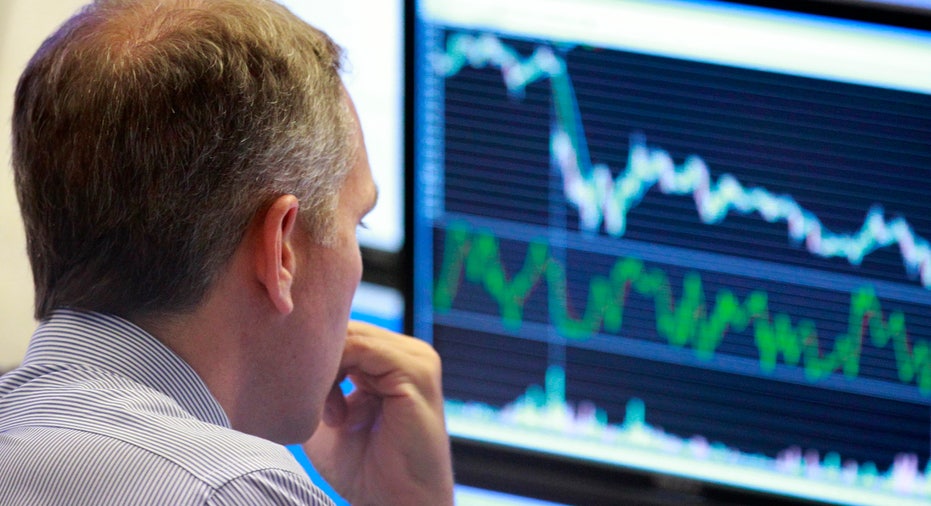Don't Judge a Fund by Its Short-Term Performance

Investor dismay with both stocks and the actively managed funds that invest in them has been pretty evident this year. Investors have yanked billions of dollars out of active stock funds as jittery markets and disappointing year-to-date results have taken their toll.
While it's human nature to want to dump your underperforming investments, ditching funds that have lagged over the short run is a surefire way to end up shortchanging your portfolio over the long run. Even the best funds can have shorter-term periods of underperformance, and you don't want to end up chasing returns. Below, I highlight two funds that have posted fairly sizable losses this year but that still represent solid long-term buys.
Fairholme (FAIRX)
Ah, yes -- the former highflier that everyone loved and that now everyone loves to hate. Before this year, Fairholme was sitting pretty on top of the performance charts, ranking in the top 1% of its peer group over both short- and long-term trailing time periods, thanks to some super stock picking by manager Bruce Berkowitz, who earned Morningstar's Fund Manager of the Decade award last year.
But Berkowitz made a big play on beaten-down financials, stuffing the fund with battered names like American International Group (NYSE:AIG) , Bank of America (NYSE:BAC) , and Citigroup (NYSE:C) . Berkowitz believed the financial sector would rebound, boosting the shares of big-name stocks like these that have borne the brunt of the sell-off in the financial crisis. Berkowitz doubled down on his bet, and at last glance, fully 75% of the fund's assets are invested in the financial sector. Unfortunately, as financials have continued to fall this year, the fund has suffered dearly.
While Fairholme's results this year have been downright dismal, with the fund landing behind 99% of all large-cap value funds with a nearly 25% loss, I don't think investors should necessarily dump this fund. Berkowitz may end up being wrong on his financials bet, or he may just be early. But the fact remains that he is a talented stock picker and even if he's wrong this time, he has proven that he has gotten it right more often than not in the past.
So if you're willing to accept the risks that come with a fund that operates like Fairholme does, allowing its manager great leeway to invest heavily in one or more sectors, you should stick around. One bad year does not mean Berkowitz has lost his touch. On the other hand, if you aren't comfortable with a fund that can build such heavy sector concentrations and you aren't willing to sit through some short-term losses, you might want to look elsewhere for a more diversified fund that offers a smoother ride. But if you have a long-term outlook and a more tolerant risk profile, I believe Fairholme will continue to deliver for fundholders.
Oakmark International (OAKIX)
Of course, anyone who has been paying attention knows that there's a storm a-brewing over in the eurozone. Greece remains perilously close to defaulting on its debt obligations, and several other European nations are not far behind with their own fiscal troubles. The entire future of the EU appears to be hanging in the balance, and stock markets have taken notice.
Oakmark International, run by David Herro and Robert Taylor, is down 11.7% so far this year, compared to a 9.1% loss for the MSCI EAFE Index. The fund's reliance on Japanese stocks, accounting for roughly one-quarter of fund assets, has definitely weighed on results so far this year. Top holdings Canon (NYSE:CAJ) and Toyota Motors (NYSE:TM) were purchased when general pessimism about Japanese stocks helped buoy management's enthusiasm for well-managed stocks like these trading at steep discounts to intrinsic value. However, the market hasn't yet rewarded this corner of the market, with Canon and Toyota down roughly 16% and 20% year to date, respectively.
But don't count this fund down and out just yet. Over the past 15-year period, the fund ranks in the top 7% of all foreign large value funds with an annualized 8.1% return, compared to a mere 3.8% gain for the MSCI EAFE. Oakmark International isn't afraid to take a contrarian bent and go where others fear to tread. And while that approach has paid off handsomely over time, such a process also leaves the fund vulnerable to moving out of step with the market from time to time.
For example, the fund trailed the EAFE Index by nearly 12 percentage points in 2007 as the fund avoided trendy picks in the energy and materials sectors, but also posted an eye-popping 56.3% gain in 2009, thanks to a surge in many of the fund's out-of-favor stock picks. Similar to Fairholme, you may need to sit through a year or two of lagging results every now and then, but over time, this fund should continue to outperform the market and its peers. The investment process and results here are first class, so don't let one year of underperformance sway you -- Oakmark International is a long-term winner.
When it comes to evaluating lagging funds, remember that you shouldn't make decisions based on short-term performance trends. Rather, you should focus on the long-term picture. If fund management changes or the fund's investment process undergoes alterations, that's a clue that you may want to look elsewhere. But some solid funds, by their design, will fall out of favor from time to time. Fairholme and Oakmark International are two such funds. So stick with these investments -- odds are your portfolio will thank you down the road.



















